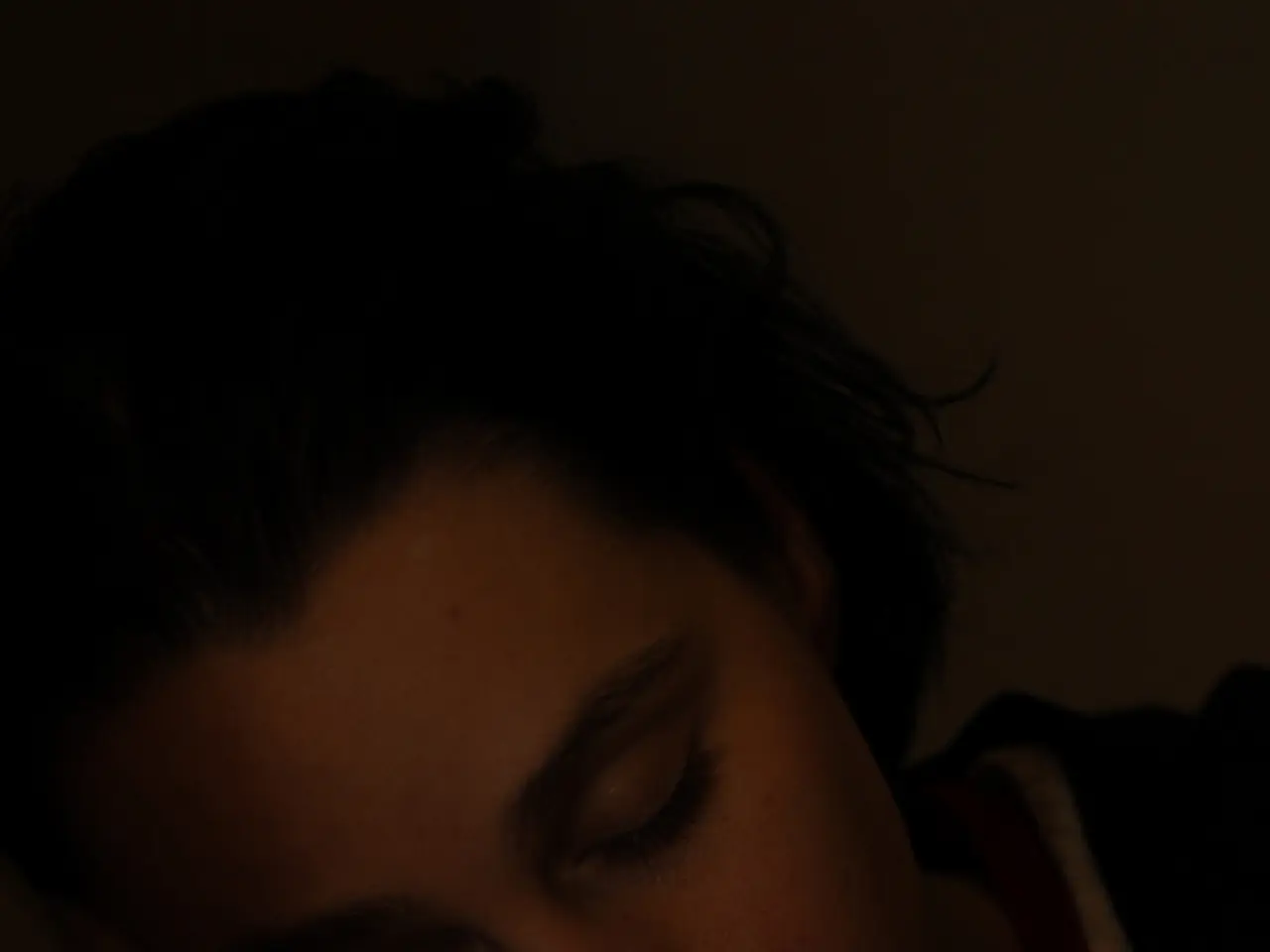When does one's level of dementia escalate to the point where they spend a significant portion of their day sleeping?
In the later stages of Alzheimer's disease (AD) and Frontotemporal Dementia (FTD), sleep patterns can undergo significant changes. These changes often lead to excessive daytime sleepiness, a condition that can affect the daily lives of both patients and their caregivers.
According to a report by Alzheimer's Society, AD patients in the later stages tend to sleep a lot [1]. This increased sleep is thought to be due to declining cognitive activity and the deterioration of brain cells [2]. As the disease progresses, dementia patients may also suffer from other sleep-related conditions like sleep-disordered breathing and restless leg syndrome [3].
In AD, sleep disturbances typically worsen as the disease advances. Patients experience shorter and more fragmented sleep, disrupted circadian rhythms, reduced deep (slow-wave) and REM sleep, and night-time wakefulness coupled with excessive daytime sleepiness [4]. This excessive daytime sleepiness generally manifests in the moderate to late stages when sleep-wake cycle disturbances become pronounced [1].
In FTD, while sleep disturbances are less commonly detailed, they are still noted. Sleep fragmentation and altered sleep architecture, including reduced deep and REM sleep, are reported. However, compared to AD, sleep disturbances in FTD can appear earlier and may correlate with behavioral symptoms, but the exact staging for excessive daytime sleepiness in FTD is less well-defined in the current literature [4].
Treatment methods for excessive daytime sleepiness in dementia patients have shown promising results. Non-pharmacological interventions such as bright light therapy and stimulus control have demonstrated tremendous improvements in sleep symptoms [5]. Medical professionals also advise caregivers to help the patient live an active and engaging life to manage daytime sleepiness and drowsiness.
It is crucial to consult a doctor if an elderly family member is showing signs of dementia, including excessive sleep. Early diagnosis and treatment can help improve the quality of life for both the patient and their caregivers.
References:
[1] Alzheimer's Society. (2021). Sleep and dementia. Retrieved from https://www.alzheimers.org.uk/about-dementia/symptoms-and-diagnosis/symptoms-of-dementia/sleep-and-dementia
[2] Johns Hopkins University. (2020). Bright light therapy may help dementia patients sleep better. Retrieved from https://hub.jhu.edu/2020/02/18/bright-light-therapy-may-help-dementia-patients-sleep-better/
[3] McCarter, S. J., et al. (2016). Insomnia and excessive daytime sleepiness in frontotemporal dementia. Sleep Medicine Reviews, 28, 1-10.
[4] American Academy of Sleep Medicine. (2020). Sleep and dementia. Retrieved from https://www.sleepeducation.org/patient-resources/sleep-and-dementia
[5] National Institute on Aging. (2021). Alzheimer's disease and sleep disturbances. Retrieved from https://www.nia.nih.gov/health/alzheimers-disease-and-sleep-disturbances
- Dementia, such as Alzheimer's disease and Frontotemporal Dementia, can cause significant changes in sleep patterns, leading to excessive daytime sleepiness.
- In the later stages of Alzheimer's disease, patients tend to experience shorter and more fragmented sleep, disrupted circadian rhythms, and reduced deep (slow-wave) and REM sleep.
- While sleep disturbances in Frontotemporal Dementia are less common, they can still occur, appearing earlier and possibly correlating with behavioral symptoms.
- Treatment for excessive daytime sleepiness in dementia patients can involve both non-pharmacological interventions like bright light therapy and stimulus control, as well as maintaining an active and engaging lifestyle.




